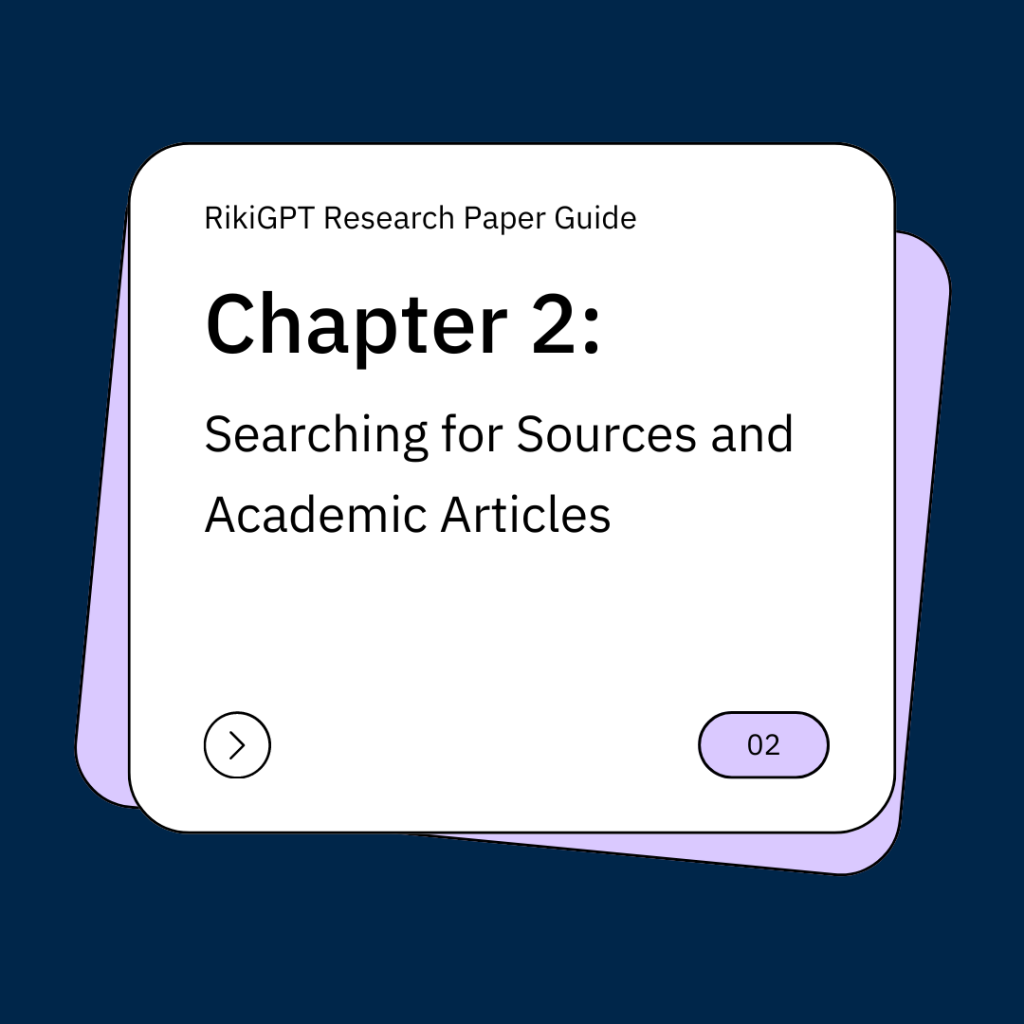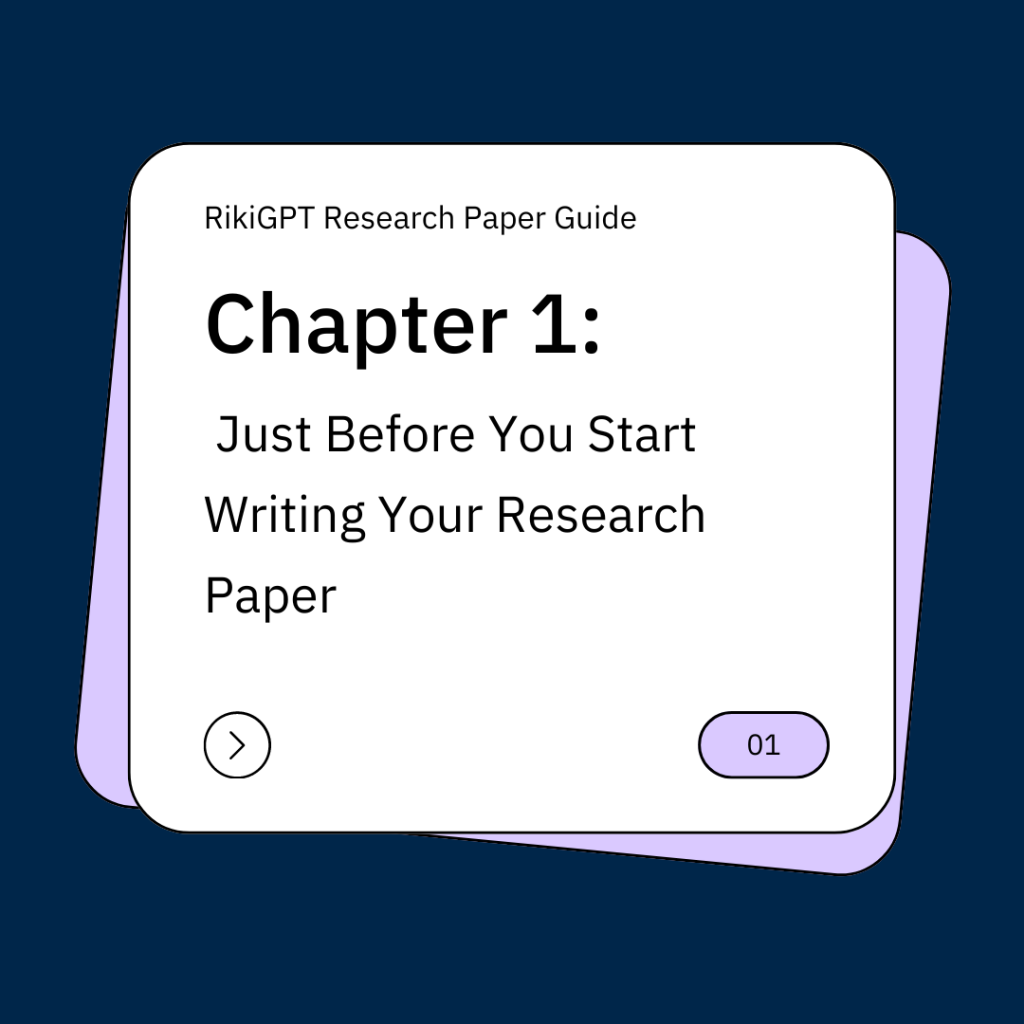Chapter Two – Searching for Sources and Academic Articles
You’ve made it past the first challenge — now you have an initial framework for your paper! You already know what’s going to be in the paper, what you’ll write about, the topic, the research question, who you’ll interview, and of course, you’ve got a beautifully-designed opening page. Now comes the part we love most—say hi to Google Scholar! Google Scholar is the most popular search engine for academic articles, and you’re going to spend quite a bit of time here. Let’s pause for a moment to discuss what an academic article is, what can be included in your work, what should definitely not be included, and why Wikipedia isn’t a dirty word. An academic article is one that’s published in scientific journals, and it’s pretty easy to identify because you’ll see it’s from a journal. It will have a structure that matches an article, it will include a bibliography, and sometimes you’ll need access rights to open it. Quality academic articles are those that are frequently cited; on any academic article site, you can get all the details of the article even before you open it—from abstracts, authors, page numbers, citations, and more (it’s recommended to read the abstract of each article; it gives you an overview of the paper and can help you determine if it’s relevant to your research). Other sources that can be used in your work are primary sources. These are usually needed in historical works and may include international treaties, reports, declarations, speeches, original documents, and more. While these sources may not provide a lot of words to fill your paper, they certainly enrich the work and can teach you about conducting serious and quality research. Many students aren’t sure about this, but you can definitely use articles from newspapers or online news sites, online articles, lectures, videos, and more. While they cannot be the sole sources in your work, they will significantly augment the academic sources you’ve already gathered. Back to Google Scholar, the popular search engine for academic articles. It’s user-friendly and fast, allowing you to find nearly any peer-reviewed academic article (a process of external evaluation for academic articles) and like Google, there’s almost no end to the amount of information it holds. But, actually, this may be a problem… Why? Because with such vast information at your disposal, you can easily get lost, so our most important advice is—focus! But not too much. Here’s what we mean: For instance, if your research question is “Do sports habits affect motivation among fourth graders?” If you search “motivation and sports,” you’ll get a huge amount of articles and information, most of which won’t be relevant. Instead, we would search “How does sport affect motivation among children?” Notice, however, that we aren’t adding “fourth graders” because we wouldn’t want to limit our search too much and end up with no articles at all. So, focus, but not too much. Next, we recommend being creative. Google Scholar isn’t the only place to find articles. We’ll let you in on a secret: if you find one good article, you can often find other good ones within it that perfectly match your topic. Additionally, we wanted to mention Wikipedia, the site most hated by professors, but we quite like it. It functions somewhat like an academic article in that at the end of each relevant Wikipedia page, you can find very high-quality sources that the author used. Don’t hesitate to look there too. But now, in the 21st century, we can start saying bye bye to Google Scholar 😢… and hello to AI! As we embrace newer, smarter technologies, AI-powered tools are changing the way we find academic articles. These advanced platforms use machine learning algorithms to understand the context of your research needs, and improve search accuracy and efficiency. AI tools like Iris.ai and Semantic Scholar leverage natural language processing to sift through vast databases, identifying and recommending the most relevant articles based on the nuances of your research questions. They not only provide tailored search results but also analyze citation networks to highlight influential papers and emerging trends. Also, consider using an artificial intelligence tool like RikiGPT, which can prepare an organized list of articles for each chapter you’re working on. This can save you considerable time and effort by quickly sourcing relevant literature and providing structured references, streamlining the literature review process effectively. This shift towards AI-driven research tools promises to streamline the academic research process, making it faster, more precise, and more interconnected than ever before. After you’ve gathered your desired sources, it’s important to read and extract relevant data from the articles. The idea is to integrate all the articles to create a high-quality literature review that meets the needs of your topic and research question.
Chapter Two – Searching for Sources and Academic Articles Read More »

